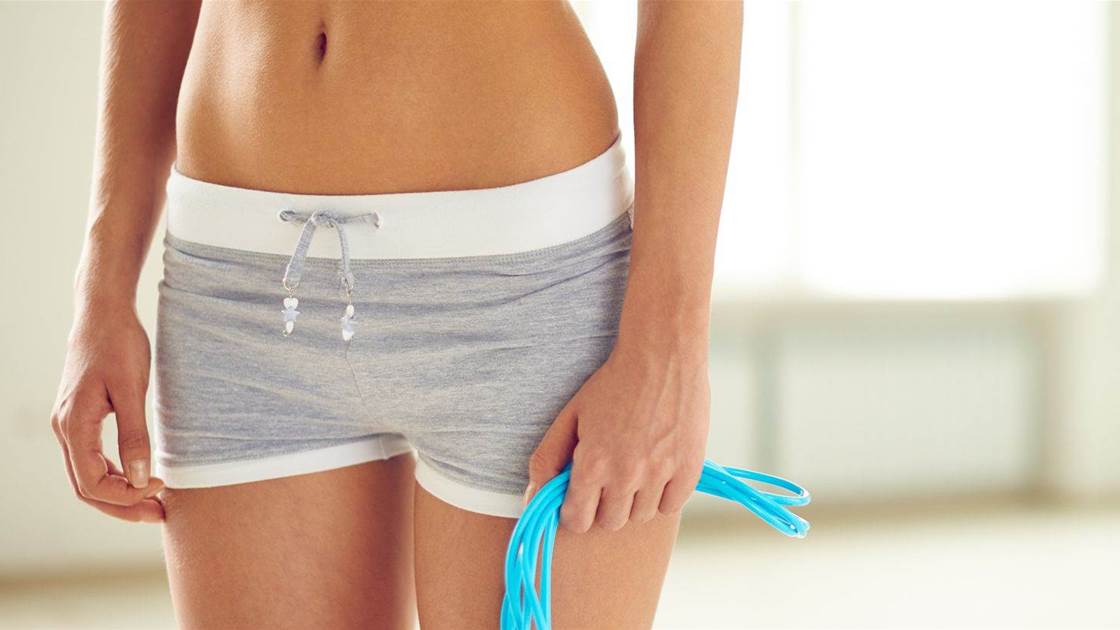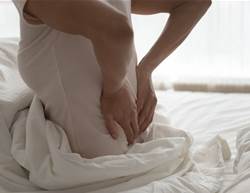Sweat. Glow. Shine. Perspiration. Whatever you want to call it, every woman has had to combat that dreaded swampy feeling.
You’ve likely dealt with it all: pit stains, damp bras, butt sweat, and makeup that doesn’t last past lunch - but at different times of the year, you may find yourself combating sweat around your vaginal area, too.
Here’s what you need to know if you have problems with crotch sweat, and what you can do to wick away the excess moisture.
Why do you get sweaty around your vagina, anyway?
Reminder: Your vagina is the inside portion of your body, and it doesn’t sweat. Everything surrounding it is your vulva, which has a higher concentration of hair follicles and sweat glands - like your armpits, groin, and scalp.
Like any other part of your body that sweats, your crotch area will do what it can to prevent over-heating. “Sweating is your body’s air conditioner,” says dermatologist Dr Joyce Imahiyerobo-Ip. “It provides the body with a way of cooling itself down.”
Most women will start to notice more crotch sweat during extremely warm temperatures or during intense exercise, says Dr Imahiyerobo-Ip, but sweat can also be triggered by stress for some people.
It’s important to note that sweating, even around your vagina, is totally normal. However, Dr Imahiyerobo-Ip says some people can be affected by excessive sweating, a condition known as hyperhidrosis, which affects approximately 3 percent of people in Australia.
Does crotch sweat always cause vaginal odour?
When things get damp, ever notice that it tends to smell down there too? That’s because your vaginal area is home to two different types of sweat glands, explains dermatologist Dr Suzanne Friedler.
Most of your body is covered in eccrine glands, which produce a watery sweat as your system tries to cool down, like after a tough workout. But you can also find odour-producing apocrine glands around your crotch, the kind that typically only hangout in your armpits.
These glands can produce vaginal odour, and it’s usually harmless. Still, you should pay close attention to it. If your vagina persistently starts smelling funkier than usual, it could be a sign of a bacterial vaginosis (a vaginal infection with a distinct fishy odour) or a sexually transmitted infection.
How to treat and prevent sweat around your vagina
So what you can do about crotch sweat? Keep these tips in mind next time things feel too moist for comfort down there.
Wear moisture-wicking fabrics
Avoid panty liners if you can. They aren’t breathable and can actually cause you to sweat more, since they trap heat.
Then, opt for breathable underwear. Dr Imahiyerobo-Ip recommends choosing loose, cotton materials whenever possible. You can also reach for underwear with moisture-wicking properties which are great for workouts, she says.
If you’re working out, ditch your clothes ASAP after exercising to cut down on the risk of skin conditions like folliculitis (inflammation of hair follicles) or yeast infections.
Trim things up
Especially during the warmer months, doing a bit of grooming below the belt can also help minimise sweat around your vagina, says dermatologist Dr Alan Parks. This is obviously an extremely personal choice, but can help if you decide to try it. Pubic hair actually aggravates your sweat glands, prevents sweat from evaporating, and may trap unpleasant smells, so giving it a trim can give your skin some room to breathe.
Use a gentle cleanser
The right products can make all the difference. Your vagina is extremely sensitive, says Dr Parks, so it’s important to note that hygiene products should never actually go inside of it. This can throw off your vaginal pH and increase your risk of infections.
You don’t need harsh soaps to clean your vagina, even if you’re dealing with odour from crotch sweat, “Always opt for a gentle cleanser in this area,” says Dr Imahiyerobo-Ip. Simply wash around your vulva to keep things smelling fresh.
Apply a bit of powder
Using a cornstarch-based powder that absorbs moisture can be a lifesaver for people prone to crotch sweat. Again, just make sure you’re not actually putting it inside your vagina, Dr Parks warns, and opt for light dusting around your vulva. Avoid talc-based baby powder or talcum powder, as they have been linked to negative health effects in women, including an increased risk of ovarian cancer.
Talk to a pro
If your sweat seems to be out of control or you think you might be dealing with hyperhidrosis, visit a dermatologist. He or she can prescribe anticholinergic medications that can reduce it, explains Dr Parks.
You can also get Botox injections (yes, really!) in your problem areas to control the sweat completely for up to six months, says Dr Friedler. In fact, it’s a common treatment for those who deal with constant pit stains, too.
Bottom line: Sweating down there is normal. “Vaginal sweating is not a symptom of any other worrisome health condition,” says Dr Parks. If it truly bothers you, trying one of the tips above or talking to your dermatologist can help keep you sweat-free.





.png&h=193&w=250&c=1&s=1)
.png&h=193&w=250&c=1&s=1)

